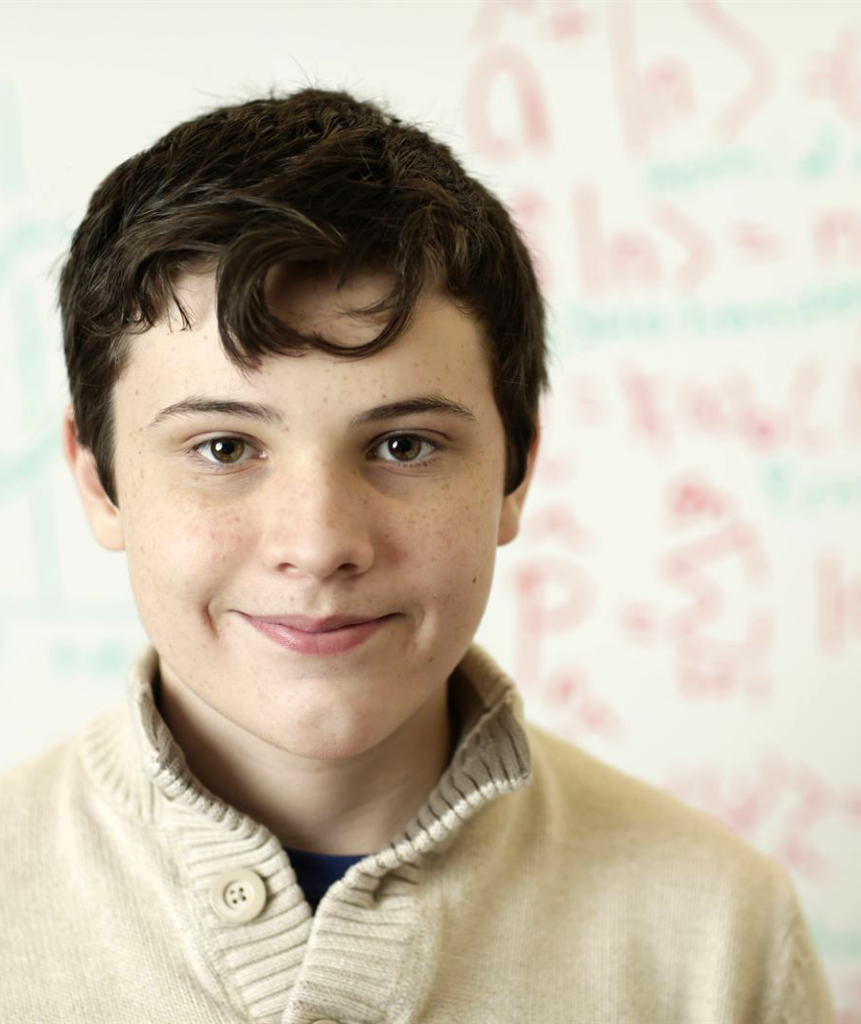Child prodigies who made it big

Most of us aspire to reach the pinnacle of our success as soon as possible in our lives, but it turns out to be too late while reaching that goal. Some of us reach the peak of our careers after half of our lifetime is wasted while some others taste success at the tail end part of their lives. However, to our utter surprise there are some others who are comparable or even superior to adults. The world has produced so many child prodigies throughout history who revealed their talents at a very young age and surprised everyone.
Jacob Barnett
Jacob L. “Jake” Barnett (born on May 26, 1998) is an American physics student and child prodigy. According to a memoir penned by his mother, he was diagnosed with autism when he was 2 years old and was homeschooled by his parents. Doctors said that he might not be able to talk, read and become independent in basic daily activities. Jacob proved the doctors wrong when he was able to recite the alphabet forwards and backwards at three years old.
At the same age, while visiting a planetarium, Jacob answered the presenter’s question of why the moons of Mars are oddly shaped. He enrolled at Indiana University-Purdue University Indianapolis at the age of 10. While working on his degrees, he asserted that he might one day disprove Einstein’s Theory of Relativity.
March TianBoedihardjo
March TianBoedihardjo is a child prodigy of Chinese Indonesian descent. He finished his A-level exams in Britain at the age of nine years and three months, gaining As in Mathematics and Further Mathematics and a B in Statistics. He also gained 8 GCSEs, which he sat at the same time as his A-levels. He was accepted at Hong Kong Baptist University, making him the youngest ever university student in Hong Kong. The university designed a tailored 5-year curriculum programme for March, but on his first day of class he criticized his classes as too easy and un-stimulating.
AkimCamara
AkimCamara is a violinist who began playing at the age of two. In May 2003, at only two years of age, Akim was given violin lessons by instructor Birgit Thiele at the Marzahn-Hellersdorf School of Music. Akim was at this point still in diapers and speaking in unintelligible toddler gibberish, yet he was remarkably able to remember music heard and the names of all orchestral instruments. Moved by his remarkable memory and natural “ear for music” Akim’s teacher began instructing the toddler twice a week in 45 minute sessions. Akim participated enthusiastically and, due in part to his remarkable memory, the toddler was learning unbelievably fast. After six months of this fairly light training regimen Akim had his debut performance in December 2003 at the age of three in a Christmas concert.
Tanishq Matthew Abraham
Tanishq Matthew Abraham is among the youngest members of Mensa, which he joined when he was four years old. He started to show his genius at four months, when he began browsing children’s books and correctly answering questions about them. Upon entering Mensa, he scored a high 99.9 percentile on the standardized IQ test of Mensa. At five years old, he finished the math courses offered by Stanford University’s Education Program for Gifted Youth on five levels (kindergarden to 5th grade) in just six months.
Cameron Thompson
Cameron Thompson is a math prodigy from north Wales. When he was four years old, he corrected his teacher about her claim that zero is the lowest number, saying she forgot negative numbers. He began studying his degree in mathematics at the Open University at the age of 11. And at the same age, he passed two GCSEs in math and GCE Advanced Level math with flying colours, and was featured in BBC’s “The Growing Pains of a Teenage Genius.” He has difficulties in his studies because of his Asperger’s Syndrome, but undoubtedly, Cameron is a mathematical genius.
(The information used in this article has been taken from Wikipedia and other related websites. The writer acknowledge the sources.)
Tags :

- Last News
- More Read
- How celebrity endorsement is being used to dupe us 4 years ago
- Begging: The pull and push factors 4 years ago
- 4 reasons to travel around by a cycle 4 years ago
- Sumptuous soup to maintain your health 4 years ago
- Why so many educated youths are unemployed? 4 years ago
- When you are doing a sedentary job 4 years ago
- Unique ideas to decorate your office desk 4 years ago
- Lips: Making it bold & beautiful 4 years ago
- Masks you must have in your closet 4 years ago
- Of Congestion and exasperation 4 years ago
- Dishes to try out this Eid 1935
- Winter hacks: A quick guide 1923
- Makeup Game: Give It An Arabian Twist 1773
- Of Patriotism And Fashion 1755
- Parties: What To Take Into Account 1675
- Desi designers you should have an eye on 1649
- Luscious Cheese Kunafa 1589
- A tour around Bangabandhu Safari Park 1472
- Masks you must have in your closet 1452
- Small Budget, Big Makeover 1435
Copyright ©2019, All Rights Reserved. Development by: webnewsdesign.com












